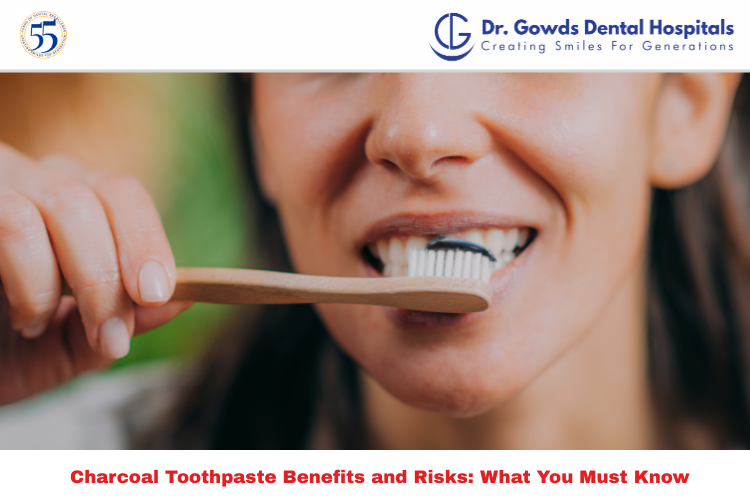Schedule Appointment



The prominence of this toothpaste on people’s dental care routines has been very noticeable. The fact that charcoal toothpaste has become almost a universal product of oral care practice is also due to the many promises of whiter teeth and detoxified gums relating to it, not to mention the fact that it is almost everywhere now – but is it really the miraculous product?
The tone of this article is not convincing and that is why our intention is to clarify the hype and get to know if charcoal toothpaste is as good as people say or it is still just a useless trend.
This toothpaste’s skyrocketing popularity originally came from the fact that it was promoted by social media influences, supported by famous people and the concept of natural teeth became viral. Because of it black sandy look, it has an unusual gripping look and that has attracted users of oral care who wanted something new instead of the normal pastes.
The question of whether this toothpaste is safe and/or effective or just a trick to sell remains a conundrum. The key to solving it is by analyzing the ingredients and impacts of the toothpaste.
Typically known as the head component,this toothpaste has activated charcoal, which is carbon in a processed form with small, low-volume pores possibly leading to a huge surface area that is highly absorbing. Nowadays, people believe that this absorbency property is useful in trapping toxins, stains, as well as germs.
In addition to the charred matter, these toothpastes often have fluorides, agents that wear off stuff, some flavors, and at times, one or more bleaching agents are also present.
| Claim | Hype (What People Think) | Reality (What Research Shows) |
| Whitens Teeth Naturally | Charcoal instantly whitens teeth | Mild whitening possible but not as effective as professional treatments or hydrogen peroxide |
| Detoxifies Mouth | Charcoal removes toxins and bacteria | Limited evidence; oral microbiome is complex and charcoal’s detoxifying role is minimal |
| Safe for Daily Use | Completely safe for everyday brushing | Can be abrasive, risking enamel erosion if overused |
| Removes Plaque Efficiently | Charcoal scrubs plaque away effortlessly | Removes surface stains, but no better than regular toothpaste in plaque removal |
| Suitable for Sensitive Teeth | Gentle and natural option for sensitivity | Abrasive nature may aggravate sensitive teeth if not careful |
Traditional toothpaste is designed with balanced abrasives and fluoride to clean, protect, and strengthen teeth. While charcoal toothpaste may add an aesthetic appeal, it lacks the comprehensive protective qualities of standard toothpastes approved by dental associations.
At Dr. Gowd’s Dental, serving Gachibowli, Madhapur, Koti, and Puppalaguda, we emphasize evidence-based oral care. Our dentists recommend charcoal toothpaste only as an occasional cosmetic aid, not a daily substitute for fluoride toothpaste. For personalized advice on whitening and oral health, visit us at any of our branches.
Though charcoal toothpaste can indeed be a popular oral care product, it is far from being a cure. The product’s uses are merely limited to aesthetic effects, as there is no scientific backing regarding its long-term oral health benefits and one may even suffer from enamel loss when the product is not used correctly.
Go with standard toothpaste with fluoride content instead of using charcoal toothpaste for everyday protection and be extra mindful by using charcoal toothpaste sporadically as a booster.
Well, it might strip surface stains a bit but it’s not as efficient as professional dental whitening treatments.
Absolutely, its abrasiveness may wear away the enamel if it is used too often or aggressively.
In practice, dentists wouldn’t do that because of its abrasive nature.
You can be using it 2-3 times a week only to protect your enamel from damage.
No, it should only supplement your regular fluoride toothpaste, not replace it.